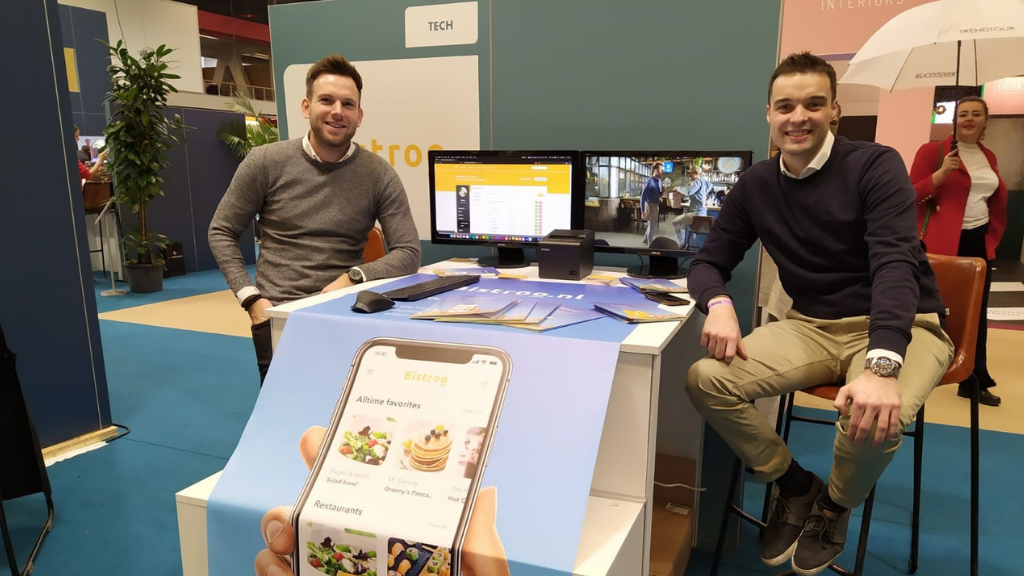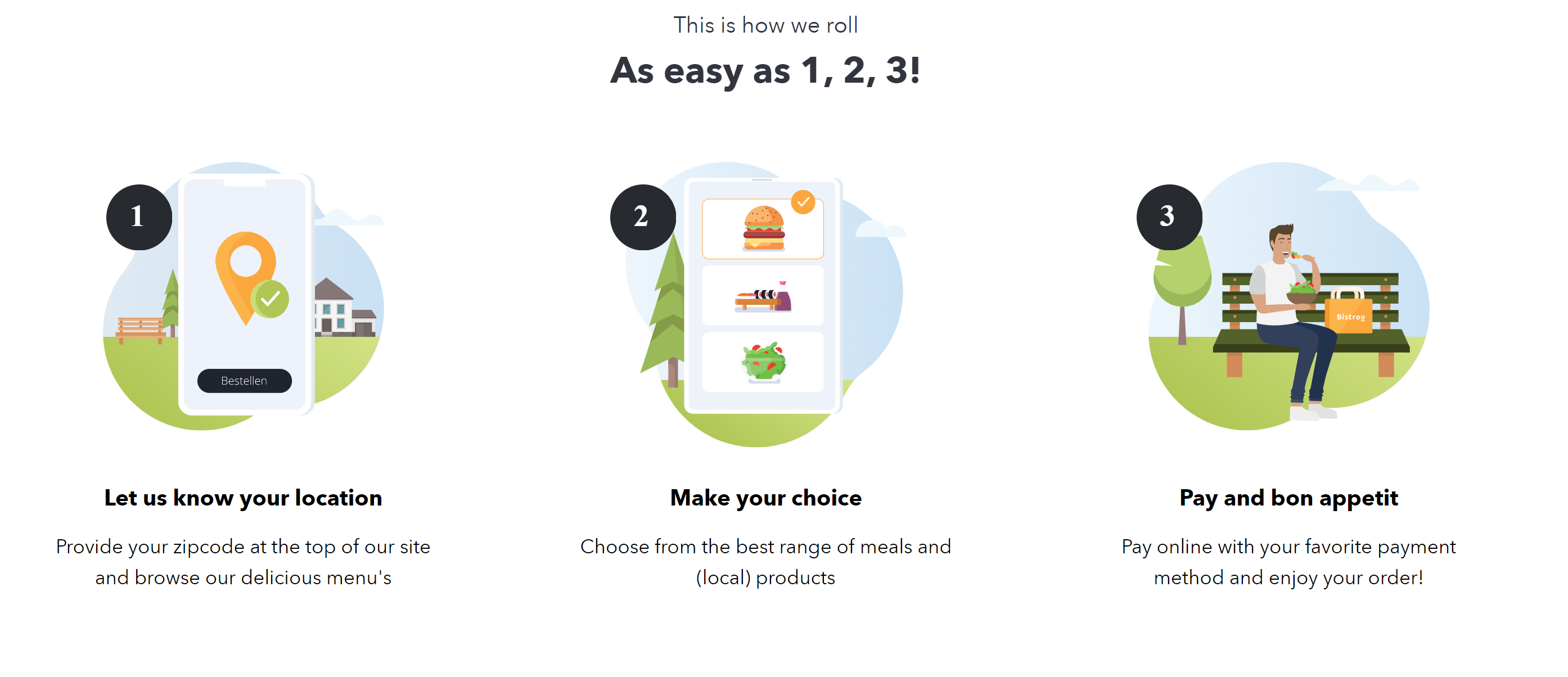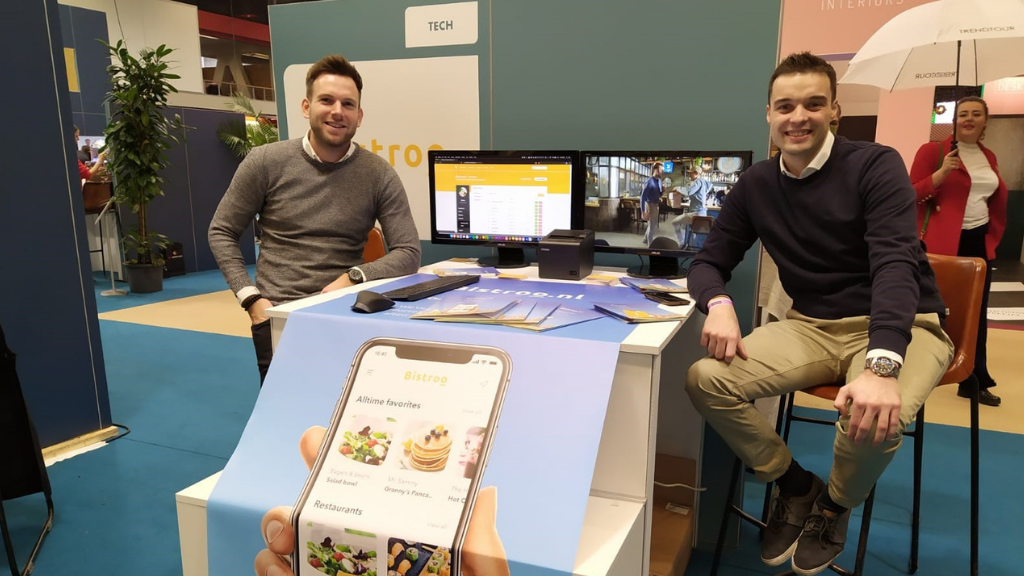


"If you have a small farm, where you grow your own potatoes, wash them, and prepare them, or you own a restaurant, why wouldn't you sell directly to your customers on your terms? In the current market, we don't have a good infrastructure for that. Especially not digital." This is the heart and core of startup Bistroo, the next generation of food applications, located at HTC building 9. Transparent, updated, and decentralized food eCommerce: that's what Bistroo brings to the table.
"I'm a business guy," says the founder and CEO, Bas Roos. "But I have always been intrigued by information technology and how to use it in business process management." Bas acquired much experience working for corporate multinationals analyzing how well their processes were designed and embedded in their IT. However, in November 2018, the urge to become an entrepreneur was born in him, as feeling held back by the company was no longer an option. He started providing consultancy in digital transformation. It was when he became intrigued by blockchain technology and the more reliable way in which data was transferred through it. That was the beginning of Bistroo.
Decentralize to optimize
As an overview, blockchain technology decentralizes collaboration: it directs handling, transactions, and commerce, without the need of an intermediary party. "When I looked at the food industry as a whole, everything was organized in a way that we were very reliant on the intermediary," says Bas. According to him, this platform which sells the products becomes empowered by being the body that other parties depend on. They have control over pricing, customer-loyalty, procurement and payment terms. In summary, they dictate the market.
Bas understood that it was time to disrupt certain aspects of the food chain. There was born the idea of creating a digital infrastructure where people could directly conduct business from the source to the consumer. "We chose food as the first market in which we would like to launch this protocol," Bas remarks, also stating that they like to think that the idea is applicable in other segments.

A new form of food app
Bistroo is a digital infrastructure that facilitates the commercial relationship from producer or merchant to the consumer without an intermediary who controls payments, prices, or even the payout terms. In Bas's words, "it's a neutral, independent gateway for you to conduct your own business on. You are responsible for information that is provided to customers and for setting your own price. We'll take care of the marketing, traffic and advertising, but the entrepreneur dictates their own discount and promotions." Entrepreneurs pay a fixed, previously agreed fee for Bistroo, which is not overpriced but covers the service's costs.
Food is one example of a field where this extremely controlled system is currently the norm. Bistroo shows a response to that model, being highly focused on the entrepreneur's autonomy: "they are the ones conducting their businesses, and we are merely facilitating in a completely neutral and transparent manner," Bas explains.
Bistroo's platform gives the merchant an account with a back office, a business interface, and a fully functional store where they can manage the menu, the payments, discounts, images, and everything else that involves their business conduct. Entrepreneurs have the flexibility they need to sell their products in a way that suits them best.
(Un)Fairtrade
As consumers use applications to order food, they pay the platform, and the platform transfers the money to the provider. "What we made is that payments go directly to entrepreneurs. There is no need to be this dependent on a service provider if you organize it more directly. As it makes no sense to have a party in the middle saying at what price you need to sell your products or meals, when you're getting paid for that pizza, while also charging a pretty hefty fee for the service provided."
Most of the current structure for food (e-)commerce and distribution lack neutrality and transparency, according to the CEO. For example, performance ratings or the order in which restaurants or products appear for the user, the credibility of the current generation of platforms’ information is doubtful. "We embody the next generation of online platforms, which means that we'll be making those things accessible, transparent, without any manipulation in the data," Bas emphasizes.

Personalized experience
Bistroo's interface provides users with a profile where they can indicate their preferences, such as food allergies and intolerances. Together with previous purchases, those will be the indicators for future suggestions. Later on, more interaction will be added to the platform in the form of a personal timeline that displays new sellers aligned with the users' inclinations.
Rewarding the community when providing trustworthy information and valuable content, which translates into sales, is another feature to be included in the future. Users would be able to share recipes or write complete and verified (by other users) reviews, for example, and receive incentives for that. "That's how we would like to put the consumer and its profile centrally and provide content based on the community’s interests. A mix of social interaction and eCommerce."
An immediate success
The platform's initial version was launched in March, and it went from zero to a hundred merchants in a month, becoming operational immediately. As a result, Bas and the company's CTO Bob Dohmen had to quickly expand the team, which now has eight professionals.
Clients' feedback has been a crucial asset in the improvements made in the platform throughout the months. The app's new version is planned to be released in about a couple of weeks. The idea is to penetrate the Dutch market first, but they intend to expand the business to other countries in the future, having the app designed to be easily translated in other languages. "The technology is borderless. We can pick it up and employ it everywhere we like, with just minor modifications," explains the entrepreneur, who also leaves a call for action: "what is limiting us to doing so is the marketing, the business side of things. So if we could get ambassadors from other countries that would help us get more exposure to merchants and consumers, that would be very helpful."
Bas says that their ultimate goal is seeing people understanding their message: "It's very important for us to be a transparent, independent, neutral and fully facilitating platform because we don't think there is something like that in the market right now."